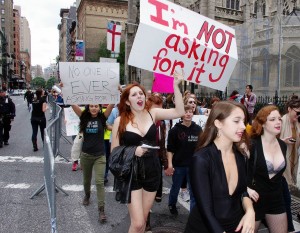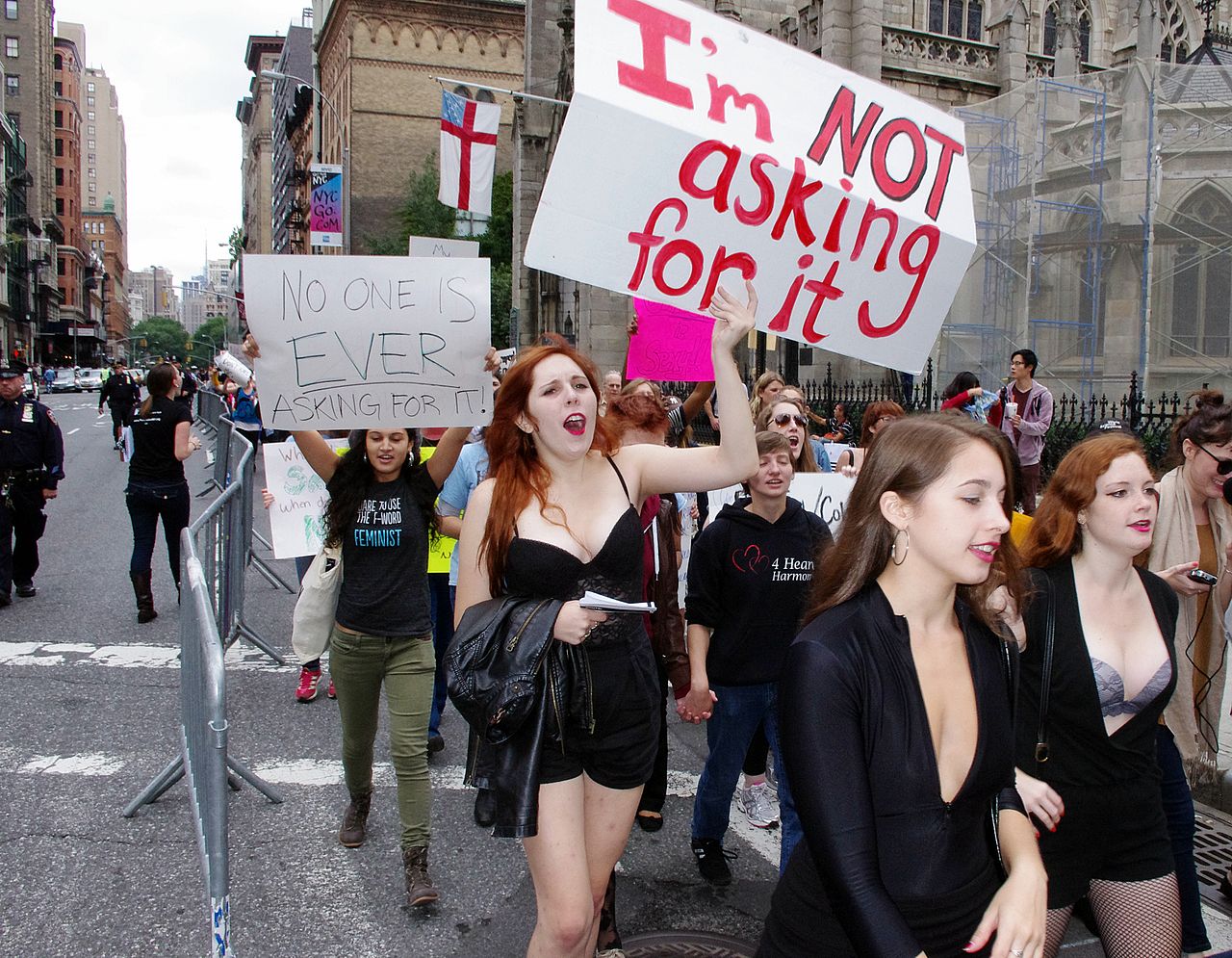
Trigger Warning: Rape and sexual violence
There’s something profound and poetic about people of marginalized genders boldly claiming a place that has perpetrated violence against them. Some go wearing less clothing than usual; some wear what they usually wear; all shout in resistance, combatting a culture that condones rape and blames survivors of it for the wrong done to them. They fearlessly enter a space controlled by men that can be threatening and dangerous. It is their space, too.
This happens at Ohio Wesleyan every year. The people are the marchers in SlutWalk, the march protesting victim-blaming and using women’s clothing as a justification for violence against them. The space is Fraternity Hill, the home of six university fraternity houses and the site of many weekend parties.
SlutWalk demands relfection upon on fraternities’ past and present perpetration and normalization of sexual violence. A few examples Jessica Valenti cites in a recent piece for The Guardian: the Georgia Tech University Phi Kappa Tau guide to “Luring Your Rapebait,” Wesleyan University’s (Connecticut) Beta Theta Pi chapter’s reputation as a “rape factory,” and some Yale Delta Kappa Epsilon members shouting “No means yes, yes means anal!” as they marched around the campus for an initiation ritual.
These are just recent examples, and these problems aren’t just out in the world. They’re in our midst at OWU, too. Women have told me they’ve felt unsafe in some fraternity houses because of them. Fraternity men here are not removed from the sexually aggressive alpha-male stereotype that the broader culture has earned them — as Valenti notes, men in fraternities are three times more likely to commit rape.
SlutWalk, then, challenges us — it challenges all men, but in the context of our university, it particularly challenges fraternity men. It demands a swift end to the fraternity culture of sexual domination and coercion. It confronts us with the fact that the behavior and language it was conceived to combat sometimes looks and sounds a lot like the inside of a fraternity house. It demands that those houses, the social spaces over which we have control, be safe for everyone.
This is not an attack, but a call to my fellow Greek men to understand our responsibility to right the wrongs our community has done. I’m proud to be a in an organization with men who make a conscious effort to create safe and inclusive environments, and to know men in other fraternities whom the women in my life trust.
But that does not diminish the size of the problem. What can we do? There are so many things we can do. But to start, we can march in SlutWalk.
During Take Back the Night, fraternity members stand outside their houses in solidarity. Tonight, we can get off our porches and into the march. We can join the reclaiming of our space as one where everyone can feel safe and welcome. In March we can do the same during Take Back the Night. And we can refute the culture of violence with our words and actions at every point in between.
Honor, truth, personal integrity, morality, virtue, justice—all fraternities have values on which they were founded and by which its members are supposed to live.
This culture of violence that has come to define us is contrary to all of them. It’s time for fraternity men to start proving that our stated values are more than empty words. We can make that start tonight.
Noah Manskar is historian of Sisters United, the sponsoring organization for SlutWalk, and a member of Alpha Sigma Phi.
